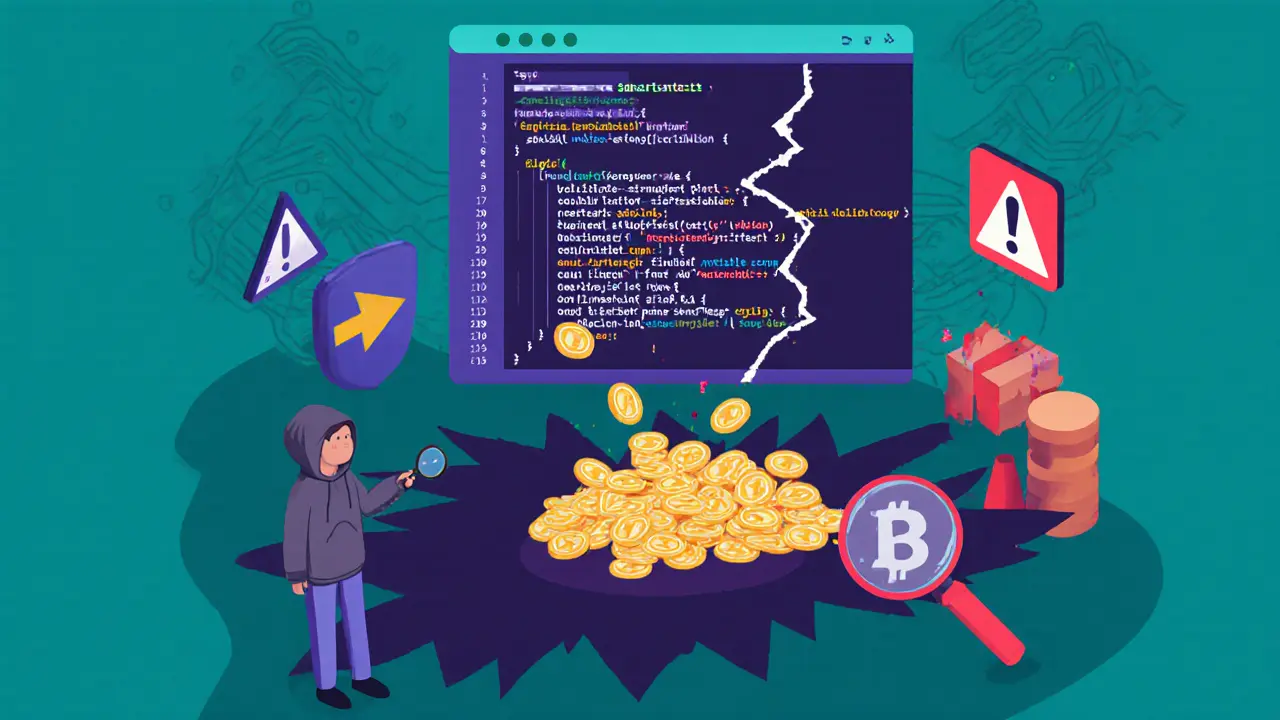Blockchain Code Review: What It Is and Why It Matters for Crypto Safety
When you hear blockchain code review, the process of examining smart contract code for errors, exploits, and hidden risks before deployment. Also known as smart contract audit, it’s the difference between a crypto project that lasts and one that vanishes with your money. Most people think security means strong passwords or two-factor auth. But in crypto, the real risk is in the code—lines of logic that run automatically, without human oversight. If there’s a flaw, hackers don’t need to break in. They just need to find the mistake.
Every time you interact with a decentralized exchange, a platform where trades happen directly between users without a middleman, you’re trusting its code. Zeddex, Darkex, Verse—these platforms claim to be fast, free, or revolutionary. But without a public code review, those claims are just marketing. The same goes for tokens like MCASH, THOREUM, or LAND. If no one’s checked the code, you’re gambling on invisible risks. A proper blockchain auditing, a formal, third-party analysis of smart contract logic and security looks for things like reentrancy bugs, unchecked external calls, and unbounded loops—all common ways hackers drain wallets.
And it’s not just about big exchanges. Even small airdrops and DeFi pools rely on code that’s often written by beginners. The TacoCat Token airdrop, the IGU NFT game, the FORWARD Protocol rewards—all of them depend on contracts that could be exploited if not reviewed. You don’t need to read Solidity yourself. But you should ask: Has this been audited? By whom? Was the report published? If the answer is no, or if the audit was done by a name you’ve never heard of, treat it like a car with no safety inspection.
That’s why the posts here focus on real examples. You’ll find reviews of exchanges that skipped audits and collapsed under scrutiny. You’ll see how privacy chains like Secret Network use encrypted code to protect data, and how HSMs and key management systems are part of the bigger security puzzle. You’ll learn why some tokens, like LAND or KCCPAD, died not because of market conditions—but because no one ever checked the code behind them.
Blockchain code review isn’t a luxury. It’s the baseline for survival in crypto. Whether you’re trading, staking, or just holding, your funds are only as safe as the code they’re built on. Below, you’ll find real-world breakdowns of what went right, what went wrong, and how to spot the red flags before it’s too late.
Code Review Best Practices for Blockchain: How to Prevent Costly Vulnerabilities
Learn the essential code review practices for blockchain to prevent costly vulnerabilities. Discover why manual review is irreplaceable, how to use automated tools effectively, and what separates a secure contract from a disaster.
Details +